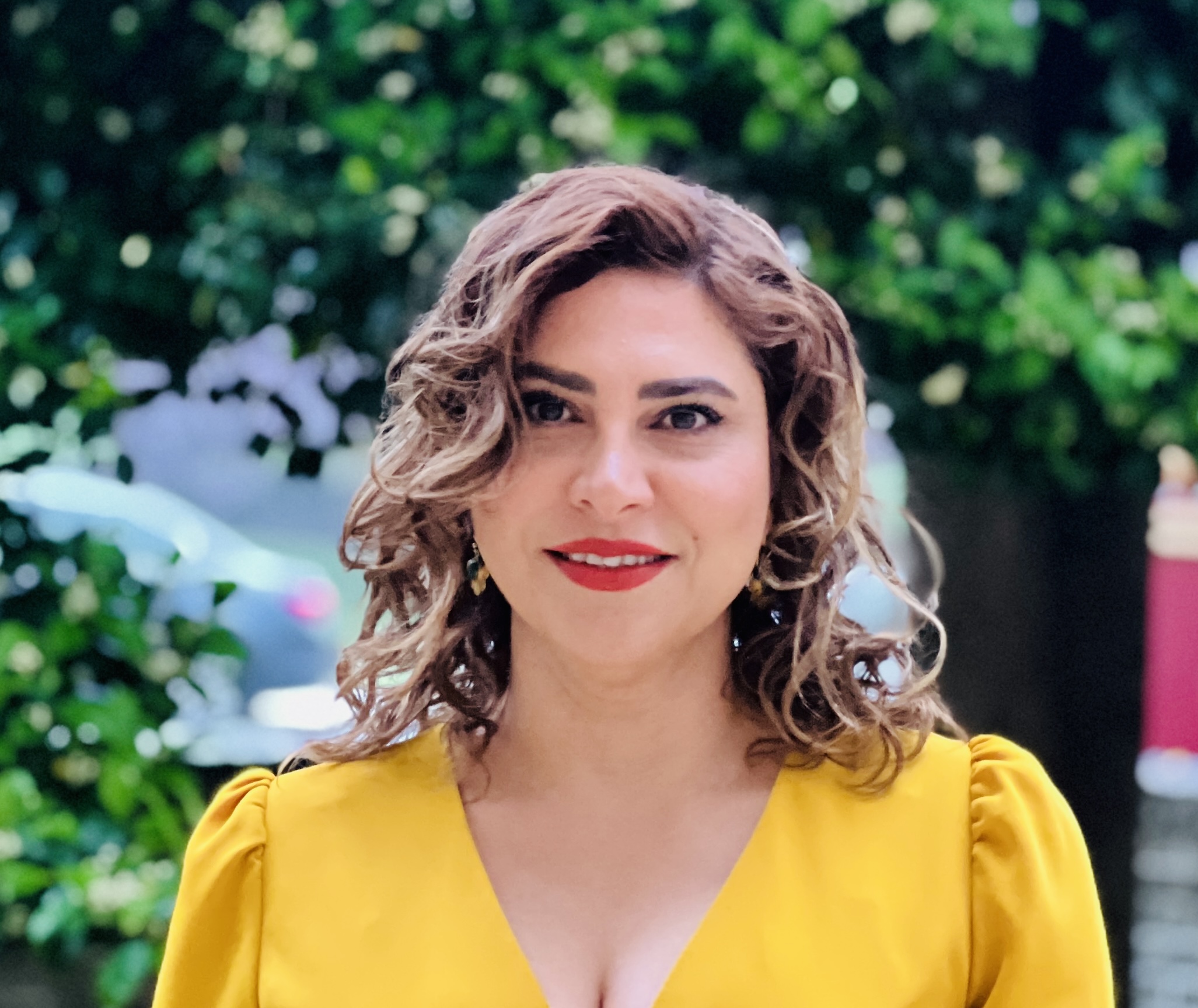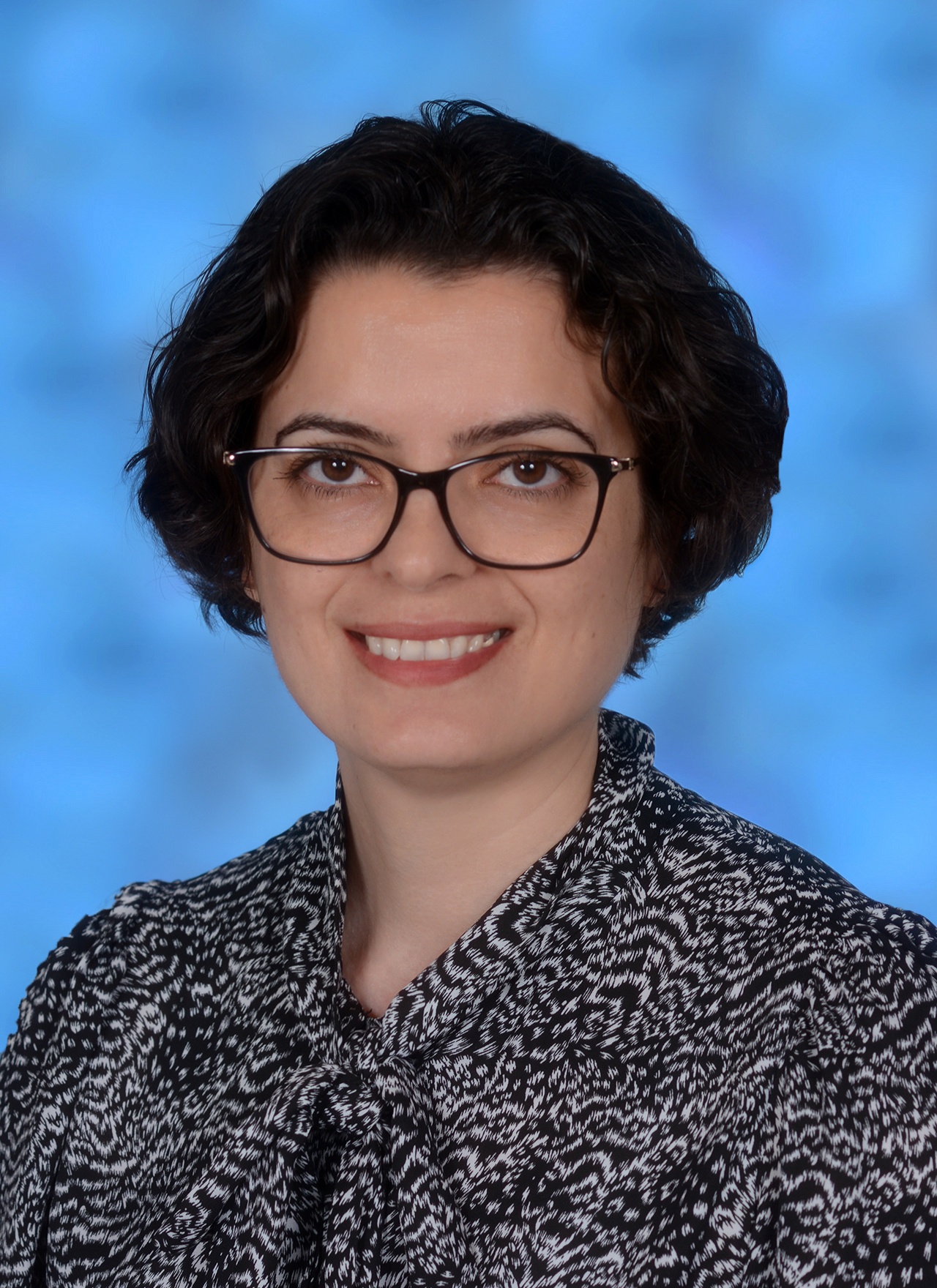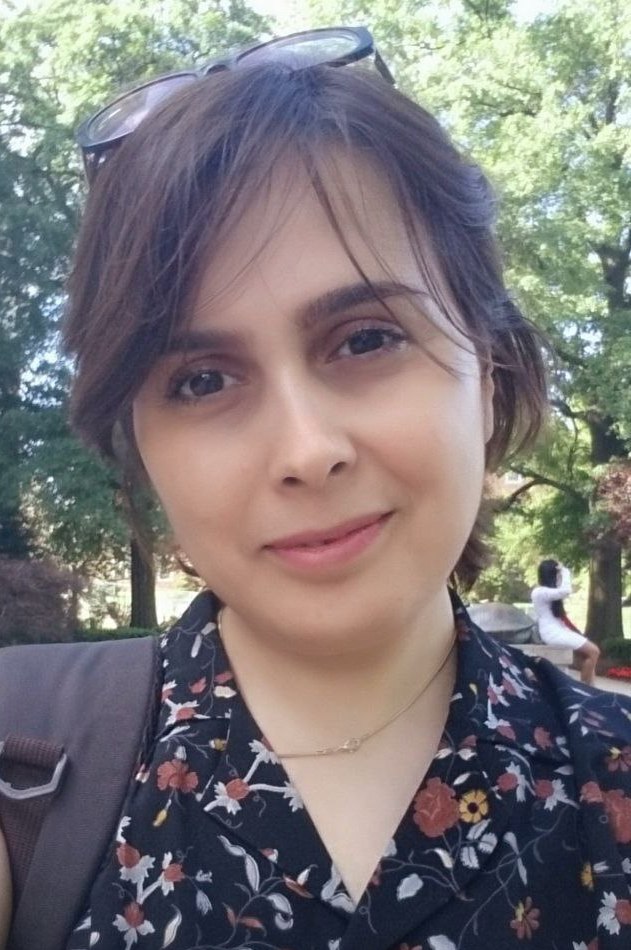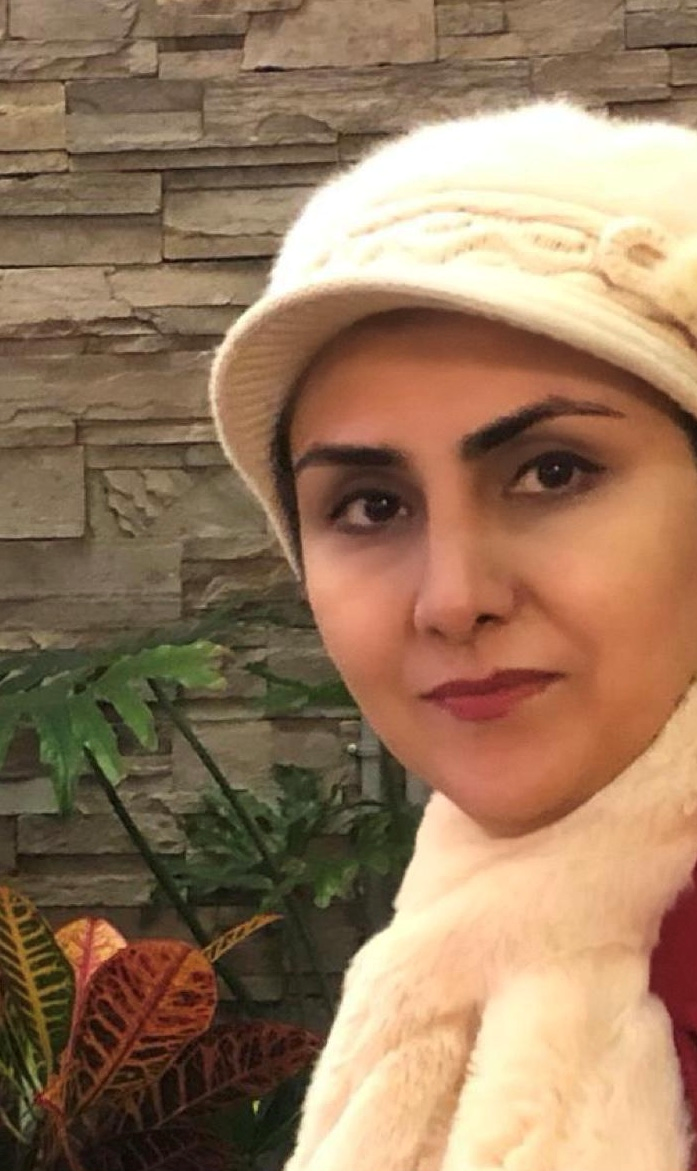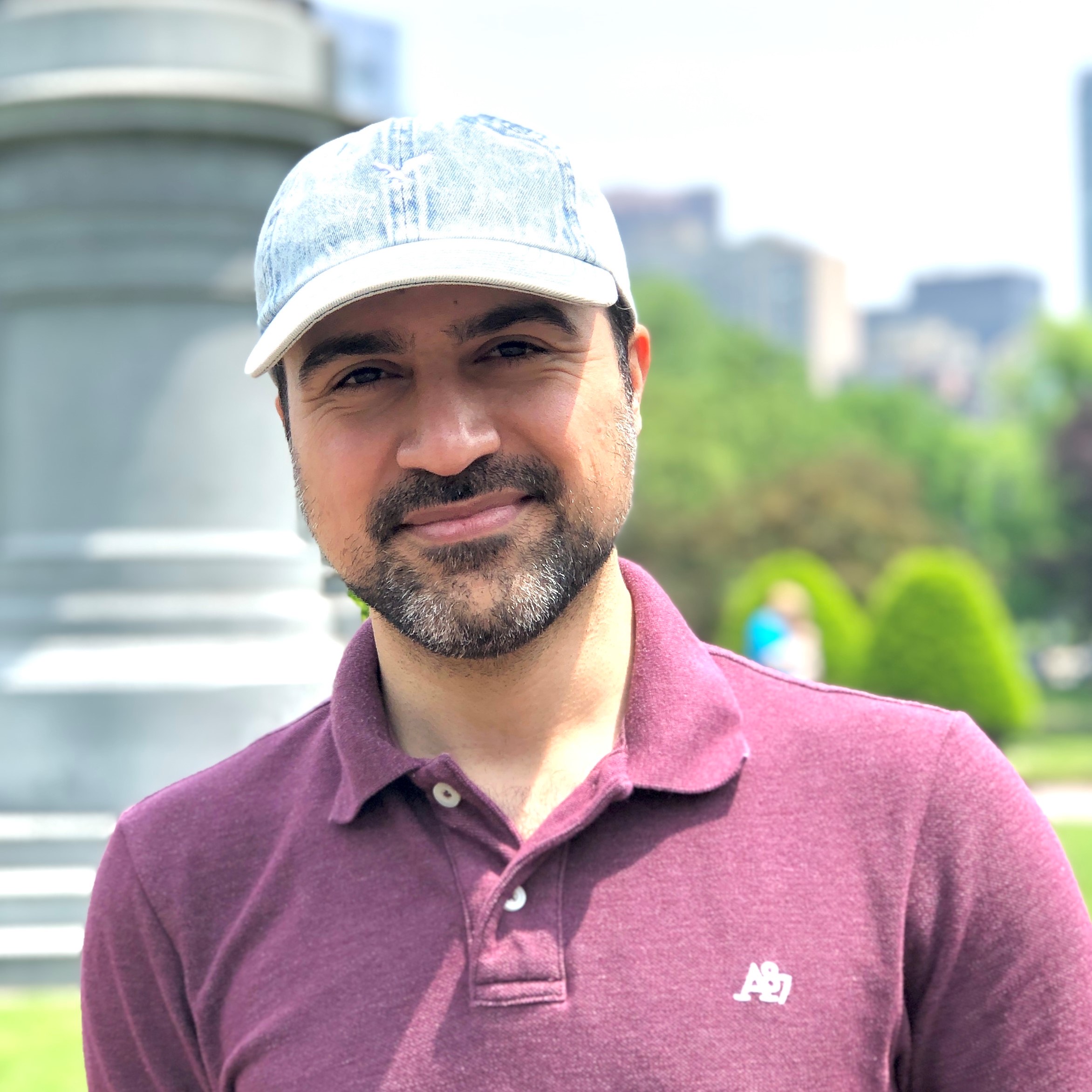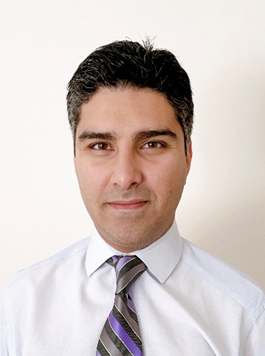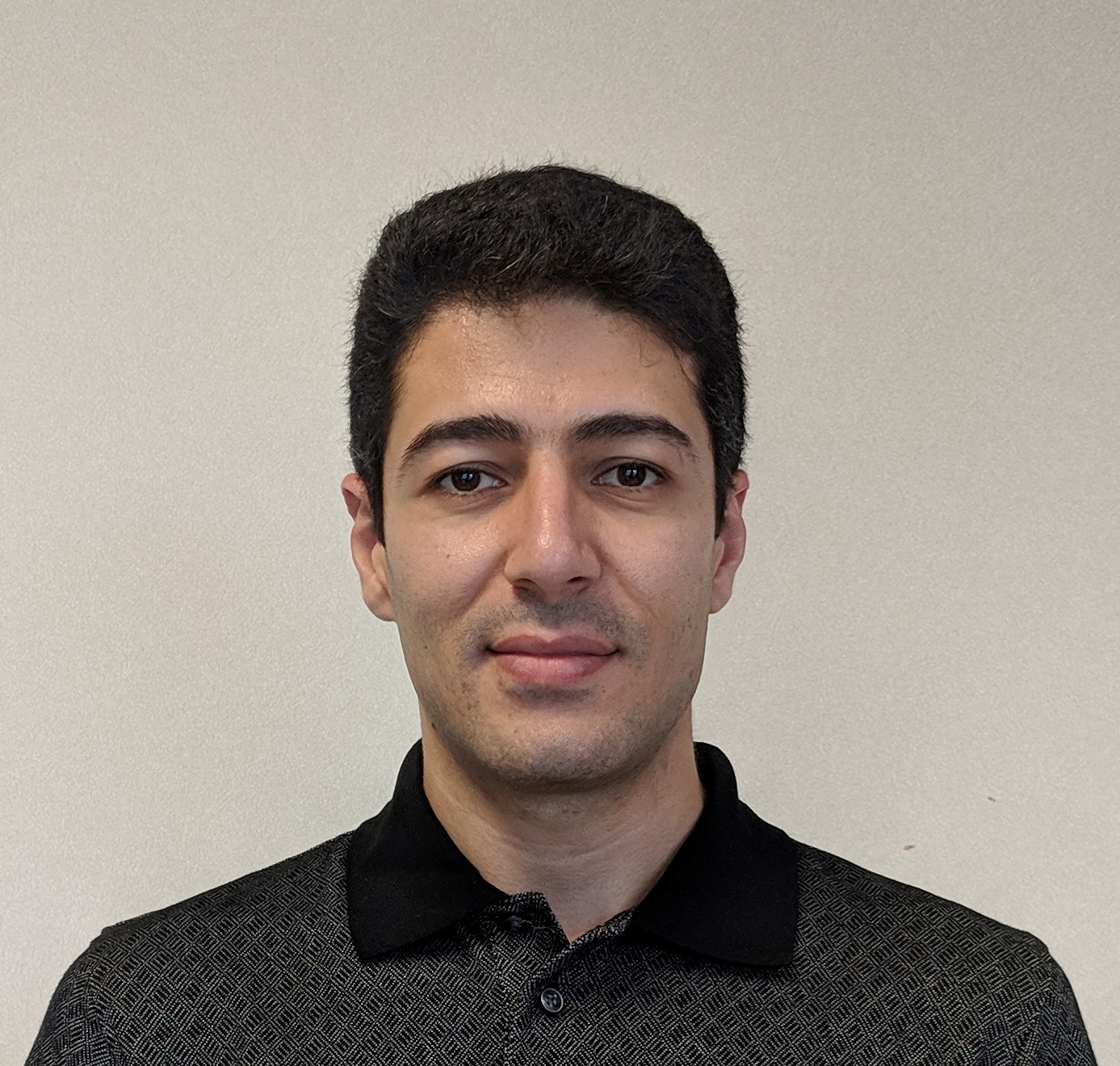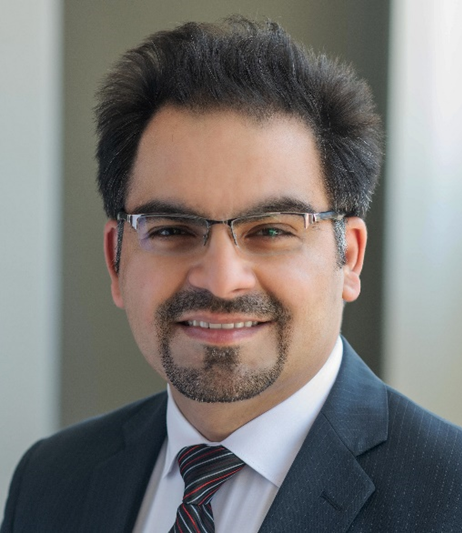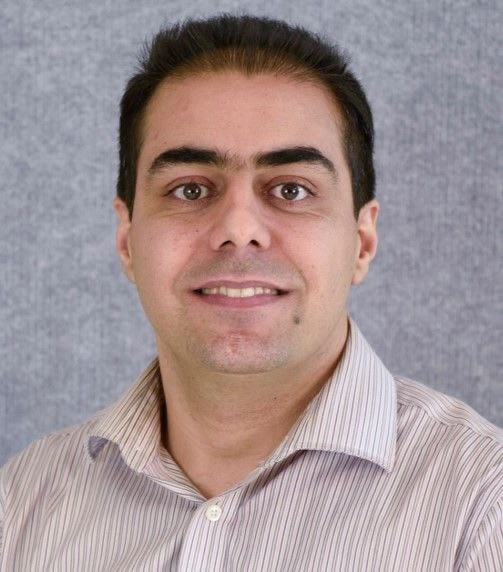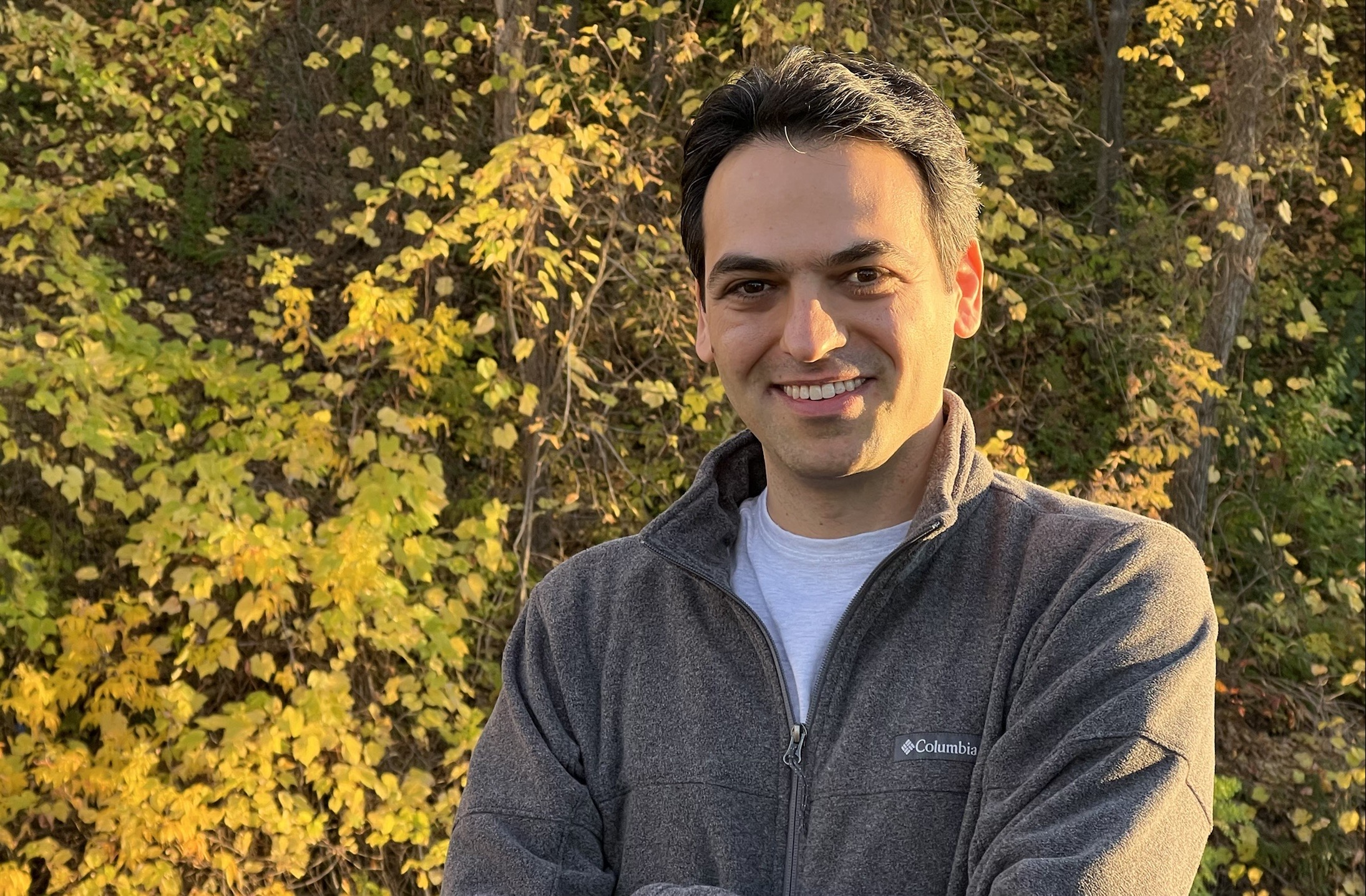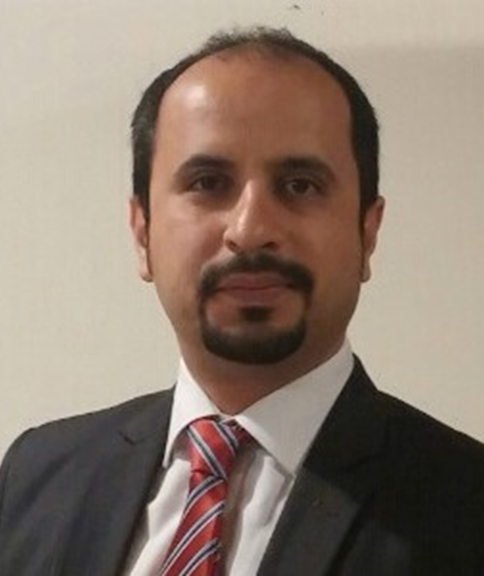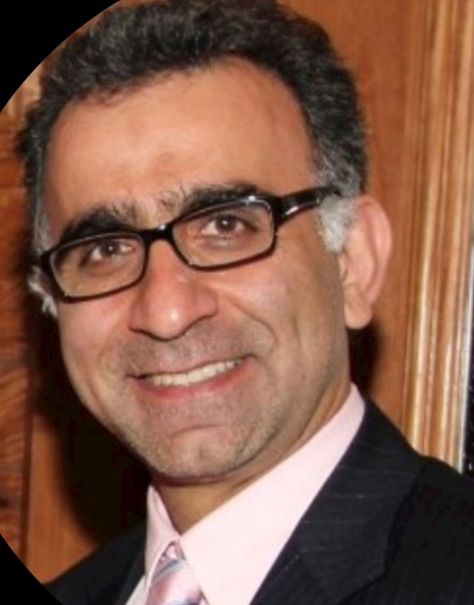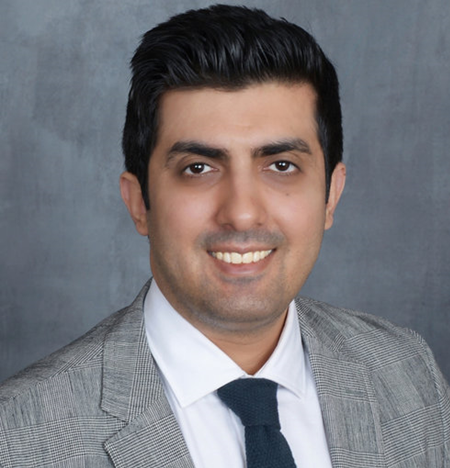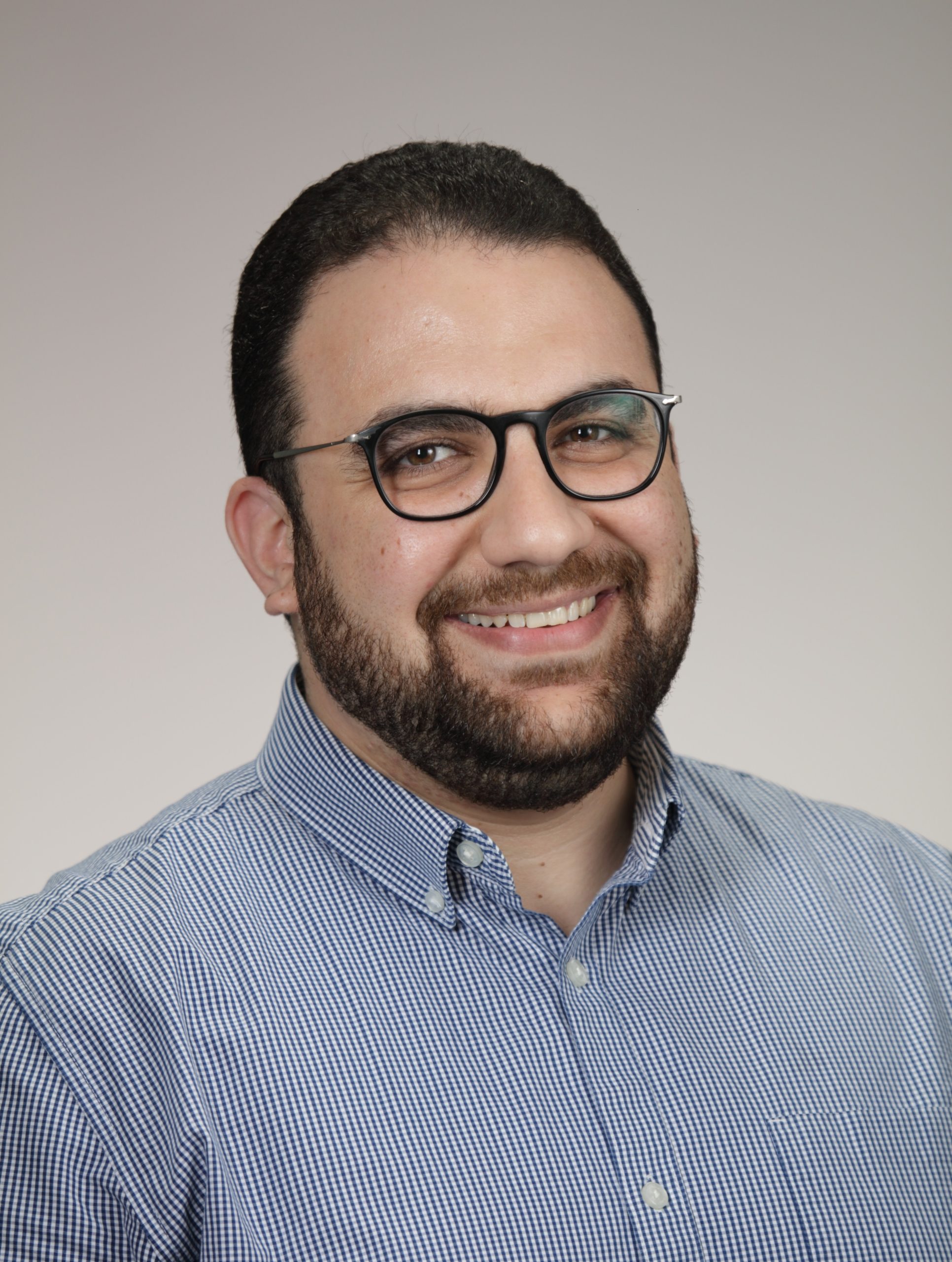If you are interested in serving on the IAAP Scholarship Committee, please email Dr. Hooshmand at hooshmand_so[at]yahoo.com.
Dr. Somayeh Hooshmand (Chair)
Dr. Somy Hooshmand is a research scientist at the National Institutes of Health (NIH), working in Dr. Eliseo Pérez-Stable’s lab. Her research focuses on genetics and health disparities among racial and ethnic minority populations. She completed her first postdoctoral training at NIH/NICHD at Dr. Porter’s lab, where she investigates molecular, biochemical, cellular, and developmental processes that underlie genetic syndromes. She obtained her Ph.D. in Human Genetics from the University of Putra Malaysia after completing her master’s degree in genetic engineering. While her research focused on breast cancer metastasis, she also developed a passion for driving positive change and addressing issues such as gender equality, women’s empowerment, health disparities, healthcare access for vulnerable populations, and genetics-related health issues. Driven by this passion, Dr. Hooshmand pursued a second Ph.D. in public administration and public policy, with a specific focus on health outcomes and health policy, at Old Dominion University, Virginia.
Dr. Hooshmand has actively contributed to various boards and committees throughout her career. She co-chairs the NIH Science Policy Discussion Group (SPDG), which brings together fellows with a shared interest in understanding the intersection of scientific research and legislative policy. Additionally, she serves as the Program Committee Co-Chair of Women in Bio (WIB) – Capital Region to promote the careers, leadership, and entrepreneurship of women in the life sciences. Moreover, she holds the position of Chair for the IAAP Scholarship Committee, assuming responsibility for the overall coordination and direction of the scholarship program.
Dr. Robabeh Rahimi Darabad
Robabeh joined Sharif University of Technology, specializing in Physics, after completing her middle and high school education at Farzanegan in Tehran. She obtained an MSc in elementary particle physics from Shahid Beheshti University before pursuing her Ph.D. in quantum information processing and quantum computing at Osaka University. She was a Japan Society for the Promotion of Science fellow, then she joined the Institute for Quantum Computing, University of Waterloo. She furthered her expertise by earning a certificate in medical physics from the University of Chicago and completing a medical physics residency at Miami University. Robabeh was part of the team who commissioned the clinical proton beam at Inova Health System in 2019. She continues to contribute as a dedicated medical physicist, actively involved in research, training, and education.
Dr. Nahid Ahmadian
Nahid Ahmadian is a literary scholar, a theater historian, and a Professional Track faculty member at the University of Maryland, Department of English. She received her second Ph.D. in Comparative Literature from the University of Maryland, College Park in May 2022. Her dissertation, a historical survey, studies the development of Iranian drama and theater in the 1980s and 1990s. Nahid gained her first Ph.D. in English Literature from the University of Tehran where she taught English and world literature during and after graduation. Her dissertation at the University of Tehran focused on the patterns of narrative in selected British historical dramas and philosophical texts on history. Nahid has published peer-reviewed articles and translation books. Her translations include Three More Sleepless Nights (2023), Fen: A Play (2019), The After-Dinner Joke (2016 & 2018), Nietzsche, an Introduction (2009), and An Introduction to Modern European Philosophy (2008). Nahid teaches Comparative and World Literature at the University of Maryland. She has served as a researcher of Persian fiction at the Academy of Persian Language and Literature and as a reviewer in Theatre Quarterly, an Iranian journal on dramatic literature. Her areas of interest include drama studies, British drama, Iranian theater, Persian literature, theater historiography, and literary translation.
Dr. Sara Zahraeifard
I am a passionate biological scientist with a diverse background. I hold a Ph.D. in biochemistry with a focus on epigenetics and chromatin biology, a master’s in plant physiology, and a bachelor’s in plant biology. In my postdoctoral training, I delved into cancer biology with a specific emphasis on immunology. Currently, in the national institute of neurological disorders and stroke, I hold a pivotal role as a biologist intimately involved in translational investigations.
Dr. Maryam Hashemian
Maryam Hashemian, MD, PhD, is a scientist at the National Heart, Lung, and Blood Institute at NIH. She joined NIH in 2016 as a postdoctoral fellow at the National Cancer Institute. Her research has encompassed nutritional epidemiology, cancer, and cardiovascular epidemiology. Her main goal is to provide evidence-based studies for chronic disease prevention for public health policies. Her research goal is to explore the role of dietary factors in the prevention of cancers and cardiovascular diseases. Her research is based on large, prospective observational studies, such as the NIH-AARP study and the Golestan Cohort Study (GCS), where she designed and implemented research projects to investigate the etiology of gastrointestinal cancers, especially esophageal and gastric cancers. She explores the many dietary scores that have been developed and their relationship with chronic disease and mortality. Additionally, she leverages biospecimen repositories in observational studies, utilizing serum, hair, and nail samples to use new methods such as proteomics and metabolomics to explore the role of diet in chronic disease prevention.
Dr. Hashemian received her MD from Mashhad University of Medical Sciences and her PhD from Shahid Beheshti University of Medical Sciences in 2015. She has published over 120 peer-reviewed papers in scientific journals, co-authored two books, and presented at 23 international conferences. Her contributions have earned her several prestigious awards, including the Coleman Award from NIH. She has mentored or co-mentored approximately 18 postdoctoral, PhD, and MSc students and reviewed more than 70 papers for scientific journals. Additionally, she served as a guest editor for the International Journal of Environmental Research and Public Health for two years, participated in grant committees, and taught 18 courses to undergraduate and graduate students.
Dr. Mahdi Ramezani
Mahdi received his PhD from Iowa State University in 2018 in the field of mechanical and chemical engineering, followed with a postdoc at North Carolina State University until 2020. His work was focused on development of automated high throughput reaction screening platforms for fine chemicals and quantom dots. Since then, he joined On Demand Pharmaceuticals (ODP) working with various teams and on various projects in a fast paced small startup setting. He has led R&D engineering and formulation teams and is currently developing ODP’s solution for compounding of generic IV medicines. Mahdi is currently the director of engineering research at ODP leading a multidisciplinary team of engineers and working with other teams within the organization including process development, quality, regulatory, manufacturing, and pharmacy which gives him a wide breath of knowledge and experience.
Dr. Amir Golalipour
Dr. Amir Golalipour is a Highway Research Engineer in the FHWA’s Office of Infrastructure Research and Development (R&D). At his current role, he is responsible for planning, conducting, managing, and reviewing research and development research activities associated with Infrastructure Resilience and Sustainability. As part of these activities, he collaborates with other FHWA offices to improve roadway reliability, resilience, and safety. He has been involved in numerous research and implementation projects in transportation community since 2010.
In addition to his technical support for FHWA stakeholders; Amir is a regular contributor as a member to highway technical meetings such as TRB, ASCE, AAPT, ASTM, etc. He received his Master and Ph.D. in Civil Engineering from the University of Wisconsin-Madison. He is a licensed professional engineer too.
Dr. Pedram Bigdelou
Pedram Bigdelou, PhD, earned his doctorate at the University of North Carolina, Charlotte, in mechanical engineering with a specialization in computational fluid dynamics (CFD), followed by a postdoctoral fellowship from Colorado School of Mines with a focus on modeling and simulation of water desalination systems. Dr. Bigdelou is an expert in computational methods in engineering and in modeling and numerical simulation approach to engineering problems. Dr. Bigdelou, throughout his career, has applied his expertise in different mechanical, chemical, and environmental engineering applications, such as multiphase flow systems, carbon capture technologies, water desalination systems, and engineering safety assessments. Dr. Bigdelou is currently working for Gexcon US where he is consulting safety of residential and industrial sites for oil and gas companies using in-house simulation tools.
Dr. Hessam Yazdani
Dr. Yazdani is an assistant professor of civil and environmental engineering and the director of the Sustainable Infrastructure, Geotechnics, and Materials (SIGMa) Lab at Howard University, Washington, DC. He specializes in geotechnical engineering, experimental and computational materials science, risk and reliability analysis, machine learning, and evolutionary optimization. His interdisciplinary research centers on enhancing the sustainability and climate resilience of civil infrastructure. Dr. Yazdani has authored/co-authored over 50 publications in books, peer-reviewed journals, and conference proceedings. He also has over 10 years of experience in teaching civil and materials engineering courses. Dr. Yazdani is a member of several organizations including the American Society of Civil Engineers, Deep Foundations Institute (DFI – Honorary Member), and North American Geosynthetics Society, and the recipient of several awards including the AFOSR DURIP award, the Best Faculty Awards of the Howard University ASCE Student Chapter in 2017 and 2019 and the DFI Best Student Paper Award in 2013.
Dr. Yazdani received his BSc and MSc in civil/geotechnical engineering from the University of Kerman, Iran, and his Ph.D. from the University of Oklahoma in 2015.
Dr. Farid Yaghouby
Dr. Farid Yaghouby is a general engineer and lead reviewer of scientific data submitted in support of safety and effectiveness of medical devices at the Center for Devices and Radiological Health (CDRH), FDA. He completed his Ph.D. degree in Biomedical Engineering at the University of Kentucky in 2015. After completing his Ph.D., he joined Office of Science and Engineering Labs (OSEL) at FDA/CDRH to continue conducting laboratory research in a multidisciplinary team in support of CDRH science-based regulatory priorities. He has over 15 years of experience in the fields of signal processing and machine learning in cardiovascular and neurological devices.
Dr. Sadegh Faramarzi
Sadegh Faramarzi is a senior scientist at ICF consulting firm. Prior to this role, he was a research scientist at Food and Drug Administration (FDA), and a postdoctoral research associate at University of Minnesota. He received his PhD in chemistry from West Virginia University. His area of interest is in silico modeling of biological molecules and processes with a focus on environmental toxicology.
Dr. Iman Dehzangi
Dr. Dehzangi is an Assistant Professor in the Department of Computer Science at Rutgers University. Before joining Rutgers, Dr. Dehzangi served as an assistant professor and MS in Bioinformatics program director at the Department of Computer Science at Morgan State University (MSU), Baltimore, MD, USA. Before joining MSU, he was a Postdoctoral research scholar at the Department of Psychiatry at the University of Iowa (UIOWA), Iowa City, IA, USA. Dr. Dehzangi received his Ph.D. in computer science (majoring in Machine Learning, Bioinformatics, and Computational Biology) from Griffith University, Brisbane, QLD, Australia, his master’s degree in computer science and information technology from MultiMedia University (Cyberjaya, Malaysia), and bachelor’s degree in computer science and Engineering (CSE) from Shiraz University (Shiraz, Iran). His research is focused on machine learning, artificial intelligence, and bioinformatics & computational biology in general.
Dr. Ali Hamidi
Dr. Hamidi is a safety physician with extensive clinical experience, research, and medical education who has served in the clinic, academia, and industry. His fields of interest and expertise include pharmacovigilance and drug development especially in targeted therapy using Immuno-Oncology medicines, Antibody-Drug Conjugates, as well as novel radioactive agents. Dr. Hamidi received his MD degree from Azad University, Tabriz, Iran.
Dr. Farid Aalisafaei
Dr. Alisafaei is an Assistant Professor of Mechanical Engineering at the New Jersey Institute of Technology (NJIT). Dr. Alisafaei came to NJIT from the University of Pennsylvania, where he was an NIH-T32 (National Institute of Health) postdoctoral fellow and member of the National Science Foundation (NSF) Center for Engineering Mechanobiology. His lab develops integrated computational and experimental tools to understand and harness the role of mechanics in physiological processes such as wound healing and stem cell migration as well as in pathological processes such as fibrosis and cancer progression.
Dr. Mehdi Farokhnia
Dr.Mehdi Farokhnia is a physician-scientist at the National Institutes of Health (NIH) Intramural Research Program. He received his Medical Degree from Tehran University and a Master of Public Health from Johns Hopkins University. He also completed a Postdoctoral Fellowship at the NIH Clinical Center, in a joint laboratory of the National Institute on Drug Abuse (NIDA) and the National Institute on Alcohol Abuse and Alcoholism (NIAAA). Mehdi’s research is focused on understanding the neurobiology of addictive behaviors and identifying novel therapeutic targets for alcohol and other substance use disorders. He uses a combination of behavioral, pharmacological, genetic, and neuroimaging methods, as well as novel human laboratory and epidemiological methods to facilitate the translation between preclinical, clinical, and population-based research, with a particular focus on behavioral pharmacology and addiction neuroscience.

